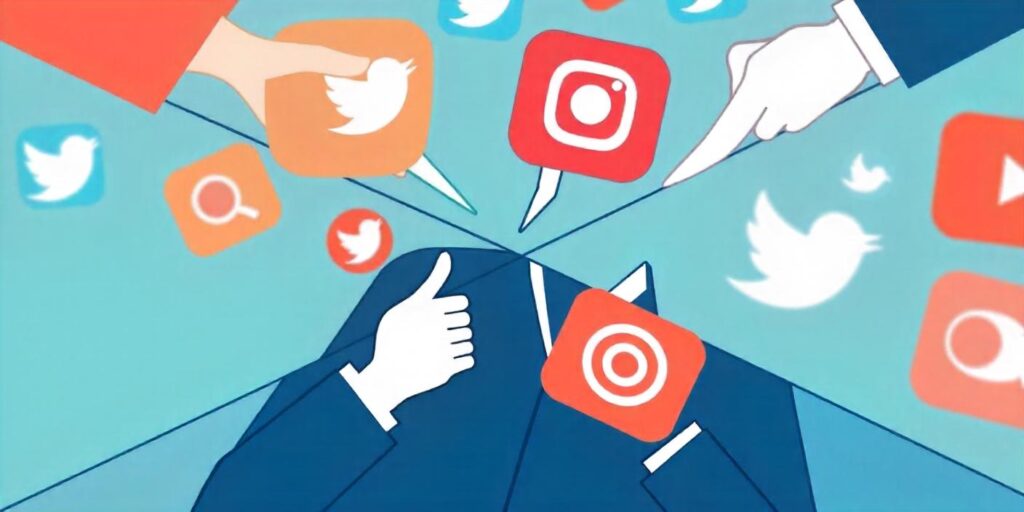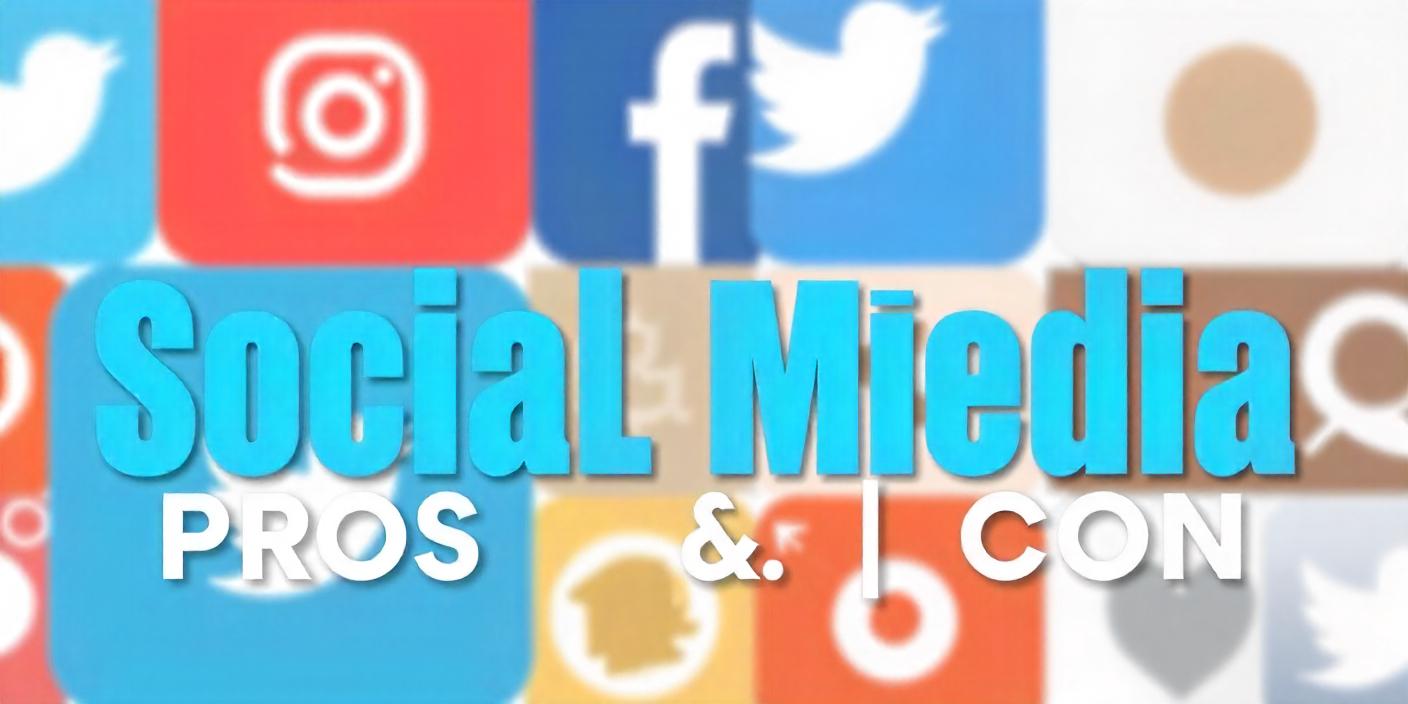The Impact of Social Media: Pros and Cons
For billions of individuals worldwide, social media has become an indispensable aspect of their everyday lives. Our interactions, information consumption, and even ways in which we view the world have changed as a result of the dominance of digital platforms like Facebook, Instagram, Twitter, TikTok, and LinkedIn. There is no denying social media’s ability to unite people and build communities. But its significant impact begs the question of what its advantages and disadvantages are. This article will thoroughly examine social media’s benefits and drawbacks, balancing its potential to improve society against any potential drawbacks.
Pros of Social Media
1. Connectivity and Community Building
The capacity of social media to bring people together, regardless of geographic distance, is one of its biggest benefits. Social media has completely changed how relationships are maintained, whether it’s through friends and family staying in touch across the globe or individuals discovering new groups of like-minded folks. Users can connect with friends from high school on social media sites like Facebook, and those with similar interests or experiences can join specialised groups like Reddit or Discord.
For under-represented groups that would find it difficult to find support in their immediate surroundings, this sense of connection has been especially helpful. Social media gives people a platform to advocate for change, share experiences, and discover common ground.
2. Information Sharing and Awareness
Social media is essential for spreading information and news. It is a quick and easy way to remain informed about politics, entertainment, science, and international events. Social media platforms provide real-time updates, in contrast to traditional media, which follows predetermined schedules. Particularly for journalists and activists, Twitter has emerged as a crucial breaking news outlet.
Additionally, social media fosters greater awareness of issues that mainstream media might neglect by providing a voice to people who might not otherwise have one. Using hashtags and viral campaigns, activists may reach millions of people and increase awareness of topics like social injustice, financial inequality, and climate change.
3. Marketing and Business Opportunities
Social media presents businesses with a previously unheard-of chance for customer interaction and marketing. Digital marketing has been transformed by platforms like Facebook and Instagram, which offer demographically focused ads. Through individualised interactions and two-way dialogues, businesses can interact directly with their customers, fostering brand identification and loyalty.
Social networking is a cost-effective means for entrepreneurs, particularly small business owners, to advertise their goods and services. Many have used platforms like YouTube, Instagram, and TikTok to successfully build their brands and enterprises. Furthermore, social media has become a career for influencers and content producers, demonstrating that the digital realm may be a lucrative source of income for people who comprehend its workings.
4. Educational Tools and Resources
Social media is also an educational tool because of the abundance of knowledge it offers. Tutorials, seminars, and other instructional content are now widely available on websites like YouTube, LinkedIn, and even Instagram. Social media allows users to learn about practically any topic, from professional skill development to do-it-yourself crafts. For example, LinkedIn Learning provides a large selection of professional courses, and science, math, and history-focused YouTube channels aid students in comprehending difficult subjects.

Cons of Social Media
1. Spread of Misinformation
Social media is excellent at rapidly spreading knowledge, but this also have drawbacks. False or misleading content can quickly spread to millions of users before being fact-checked, thanks to misinformation and “fake news.” Because social media algorithms are built to favour information that receives a lot of interaction, content that is sensational or controversial—regardless of its veracity—is frequently given preference.
From influencing elections to spreading dangerous health advice, this disinformation can have major repercussions. False information on vaccines, for instance, spread widely on social media during the COVID-19 epidemic, causing vaccine hesitancy and ultimately affecting public health initiatives. It is extremely difficult to control content on large platforms, and damaging false information keeps spreading in spite of the efforts of Facebook and Twitter. Harmful misinformation continues to spread
2. Mental Health Issues
Social media use and mental health problems, especially among young people, have been linked in a number of studies. Feelings of inadequacy, anxiety, and melancholy can result from comparing oneself to others all the time, being exposed to idealised depictions of life, and feeling pressured to get likes and follows. For instance, Instagram has come under fire for encouraging a culture of comparison in which users feel under pressure to live a “perfect” life, which lowers many users’ self-esteem.
In addition, cyberbullying is also a common problem on social networking sites. Because of the anonymity that many platforms provide, individuals can harass others without worrying about the consequences.People’s mental health may suffer greatly as a result of this online harassment, and it may even have fatal outcomes like suicide.
3. Privacy and Data Concerns
Another significant issue with social media is privacy. Numerous platforms gather enormous volumes of user data, frequently without users’ explicit or explicit agreement. This information may be sold to outside parties, used for targeted advertising, or even made public through data breaches. Millions of Facebook users’ personal information was collected and used without their consent to influence political campaigns, as demonstrated by the notorious Cambridge Analytica incident.
Furthermore, people frequently don’t realise how much personal information they divulge online, including location information, preferences, and behavioural patterns. Controlling who has access to this information and how it is used becomes difficult once it is public. One major disadvantage of social media for many people is the degradation of privacy in the digital era.
4. Decreased Attention Span and Productivity
Social networking sites are naturally addictive due to their design, which keeps users interested for longer thanks to features like notifications and infinite scrolling. On the other hand, this may lead to shorter attention spans and decreased productivity. Constant notifications can disrupt concentration and cognitive function, according to research. Many users struggle to strike a balance between their use of social media and their obligations to their jobs, studies, or personal lives, which causes them to put things off and become less productive.
Furthermore, information overload may result from the deluge of information and material on social media. Due to the constant barrage of posts, videos, and updates, users may find it difficult to digest or remember important information.
Conclusion
Social networking is neither inherently good nor evil in the big picture. In addition to its amazing advantages—such as bringing people together, disseminating knowledge, and encouraging creativity—it also presents significant drawbacks, including privacy concerns, mental health disorders, and false information. Both individual users and the businesses who run these networks must use these platforms responsibly. While addressing social media’s negative consequences, society must continue to evolve and discover methods to capitalise on its beneficial elements. Social media’s function will change along with technology, and it is up to us to determine how it will affect the future.

